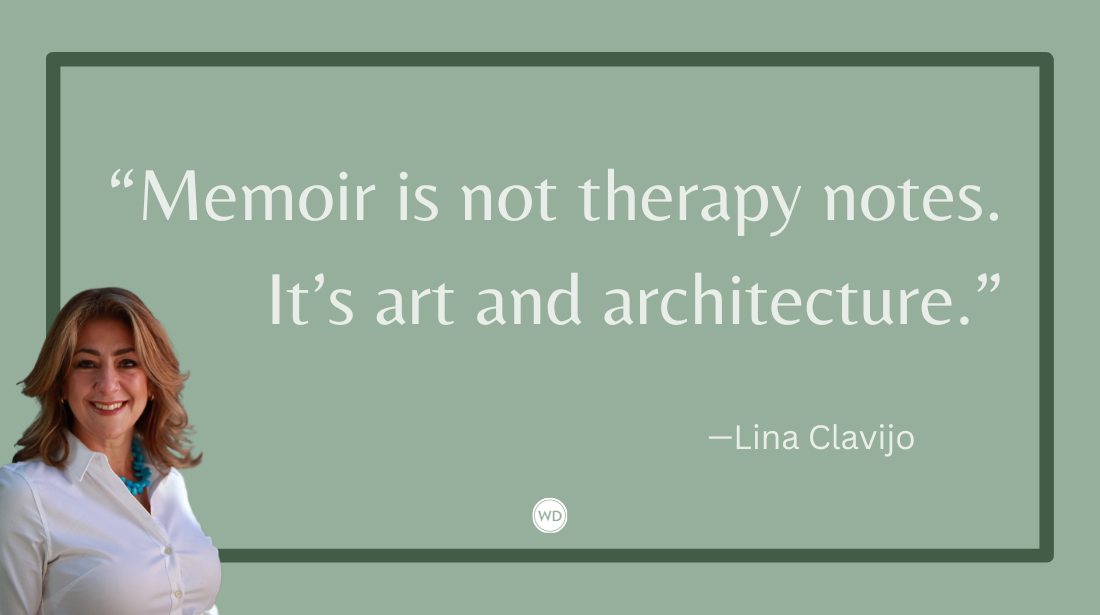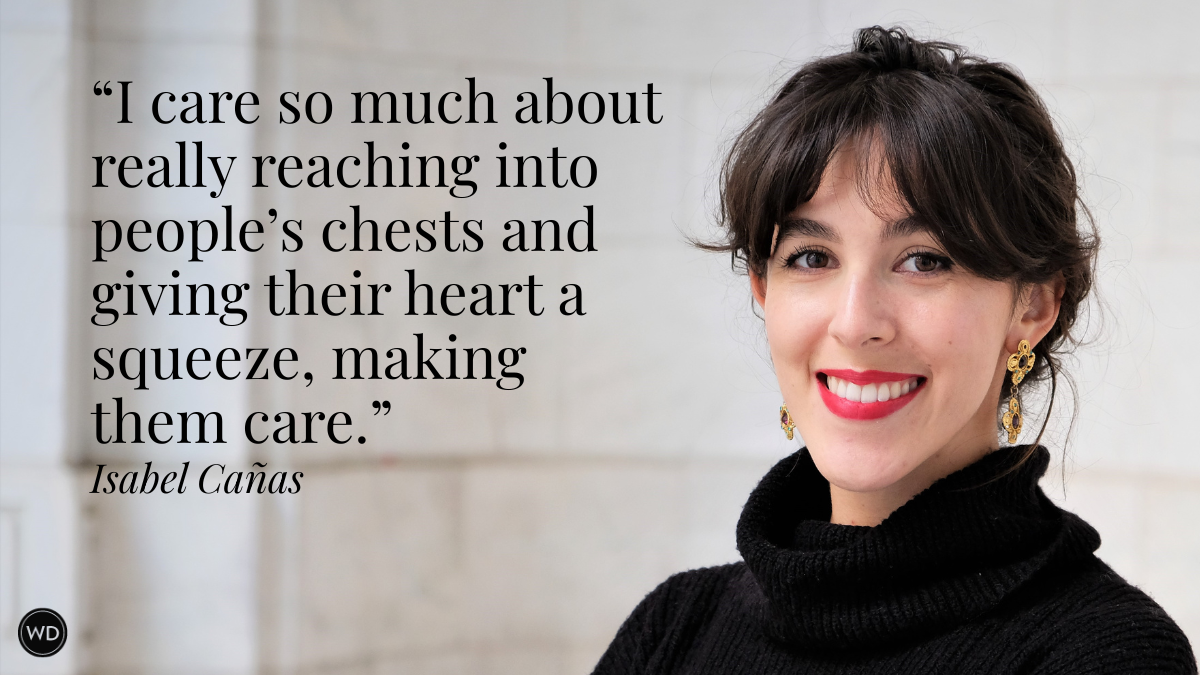A Conversation With Abbott Kahler on How to Write Narrative Nonfiction (Killer Writers)
Clay Stafford has a conversation with bestselling author Abbott Kahler on how to write narrative nonfiction, why she believes nonfiction is easier to write than fiction, and more.
I write fiction but read much nonfiction, sometimes for research but primarily for pleasure. I nearly fell from my reading chair when I opened the first pages of Abbott Kahler’s new historical nonfiction Eden Undone: A True Story of Sex, Murder, and Utopia at the Dawn of World War II. Of course, with a title like that, I think she’s covered all the prurient enticements of most mystery and historical readers. The manuscript did not disappoint.
In fact, I found myself thinking over and over as I read cover to cover that if I wrote something like this as fiction, no one would believe it. This magic led me to reach out to Abbott Kahler to chat about where she found the idea for this book and what kind of research goes into such an entertaining and complex work as Eden Undone.
“Abbott, I’ve never written a nonfiction book like this, one that reads like a novel. It’s a silly question to ask you where you get your ideas, but with nonfiction, you can’t make it up. You must get the idea from somewhere. To simply make it up, that violates the rules of nonfiction. So where do you get ideas for a true-life story that can be written in such a novelistic form, especially something as obscure as the subject and time of Eden Undone? You’ve written other nonfiction books this way, so this is not the first time you’ve done it.”
“It's true. You can’t make this up. Sometimes it's serendipity. You'll be reading about something you're interested in and get sent off in a different direction. A lot of times, I'll be reading academic works with subject matter I find interesting, but they're not written for a popular audience, and all of their interesting information is in the footnotes. So, then you go back and read the footnotes. And you're like, ‘Oh, that's the juicy part of this story,’ and that kind of thing. But for this one, I was researching an old murder case and going through old archives online at newspapers.com—it is the writer’s best friend if you're interested in finding juicy historical stories—and I came across a headline. I stopped in my tracks and said, ‘This is going to be my next obsession.’ Here's the headline: ‘Was Dr. Ritter, with his steel teeth poisoned in paradise? Was Baroness Eloise, known as Crazy Panties, who ruled the island with a gun in love, murdered by one of her love slaves after she had driven the other to his death? And why is Frau Ritter going back to what she once called Hell's Volcano? The mystery of the Galapagos Island, which Germany covets to be solved at last?’ So, you can imagine where I'm immediately confronted with steel teeth, Crazy Panties, love slaves, hell's volcano! Oh, and you know, for somebody like me, who's interested in scandalous, weird, and wicked history, it was a jackpot for me. I wanted to write this book for 12 to 14 years. A long time. But my publishers kept saying ‘no.’ They wanted American history. History that takes place in America with American characters, and these were Germans. But I persisted and begged and begged and begged, and finally, Random House said, ‘Yes.’”
“What, then, are the elements that you look for in a great idea? Scandalous?”
“I'd say scandalous is fair, but it's more than that. If you're doing nonfiction, you're not allowed to make up dialogue. You're not allowed to make up events. You can't switch around chronology. You can't play with the narrative. You can employ some techniques of fiction. You can use cliffhangers. You can build suspense. You can do world-building, but you can't make anything up. So, aside from a juicy story with interesting characters, I think the most important thing to consider is your source material. Do you have a lot of first-hand archival primary source material? Memoirs that the characters have written? Interviews they gave during that period? Diary entries, letters? That kind of thing. It gives you insight into their thought process. You can access their thoughts, speaking, quotes, interactions they had with people, memories, and that kind of thing that allows you to bring characters to life. If I find a great story, no matter how compelling I think it is, I won't do it if there's no primary source material. I think details are key in narrative nonfiction. You must have all the details you want in fiction, but they all must be true and come from a primary source.”
“For a fiction writer, that feels awfully boxy and intimidating.”
“It can be. Nonfiction has its challenges. The dead people don't always do what you want them to do. But it also has some perks, you know. You can't write bad dialogue in nonfiction. The dialogue is there in the historical record. You can't make a wrong plot turn. The story is already written for you. Comparing fiction and nonfiction, I think nonfiction is easier, only because there are fewer mistakes that you can make.”
“That’s an interesting way to spin it. You talked about your editors saying what they wanted and whether you could do this project. For a nonfiction writer, how much involvement does the editor have in choosing what you write? You said you had this idea for 12 to 14 years before you got a greenlight, right?”
“My editors were always on board with the idea, but it was the higher-ups, the people who determined what they thought the market wanted to read. To me, readers want a good story. It doesn't matter where it takes place; it doesn't matter what period it takes place in. They want a good story with compelling characters to sink their teeth into, get immersed in, and be taken away to a different world for a while. And, of course, publishers are not always thinking about the story. They're also thinking about money and the bottom line. It was more a roadblock with the higher-ups and the businesspeople.”
“I think those past higher-ups, in my opinion, will be disappointed with themselves because I think this book will go out the roof. It is too unique and too full of juice to be able to complain. That's my opinion.”
“I love that blurb: ‘too full of juice.’ I love that.”
“Take it, take it, take it. I texted my sister already, and when this book comes out, you've got to buy it, and I told my wife, ‘You gotta read it,’ so I'm doing a lot of hand-selling here on this side. You're established, but does a new writer write the whole manuscript for their first book and then submit it? Or do they query with an idea first? How does that work for the person starting out?”
“If somebody wants to start with nonfiction, you need a proposal. First and foremost, you need to write a strong proposal, and the proposal is just a tool through which to sell your book. A proposal has particular components. There's an overview that gives an idea of the story, how the story is going to flow, who the audience is, and why you are the right person to write the story. Then, you get into sample chapters to show your writing style and how you plan to lay the story out. And what's your unique voice. What do you bring to this in terms of style? Chapter summaries will closely examine the narrative and how it will follow from the beginning, middle to the climax. Audience and competition are another section. And it's talking about what books on the market are similar to yours. How is yours different? What audience are we looking for when we market this book to the world? And they want to know a little bit about you. Your background. What's your platform? What's your experience? Do you have a personal story that's connected to this book that, in some way, is going to be helpful in terms of selling it? People sometimes write short proposals if they're established: 5,000 words. I write proposals that are about 80 pages even now. Sometimes more than that.”
“Eighty? Eight-Zero?”
“Eighty. Even though I've written many nonfiction books and have been around for a while, it's a selling point. I want to make sure that I know where the story is going. I want to ensure that I am as invested in this story as I need to be to sit with it for a few years because once you commit to a nonfiction book, that's it. You know you are with these people for a good period—three years, four years in most cases, five years sometimes. You want to ensure that you're in it for the long haul and that it can sustain your interest. It's kind of a test for myself. And I like to go all out in my proposals.”
“Well, I just think comparison titles: This was like Gilligan's Island gone haywire.”
“I love that.”
“You can use that one, too. I'm giving you all these blurbs.”
“Somebody did call it a twisted Gilligan's Island. Some of the characters remind me a bit of Gilligan's Island. The Professor's got to be Friedrich Ritter, with his philosophies, erudition, and wanting to explain everything to everyone.”
“For the research you discussed, how do you find the resource material you use? Is that from newspapers.com?”
“I do a lot of newspaper deep diving and go through a lot of newspaper archives. They're invaluable to me. I use a source called WorldCat.org, which contains the listings of every library worldwide. If you search by term, information should appear on your subject and tell you where it is. WorldCat is also indispensable. I was lucky for this book to find a treasure trove of archival material at the University of Southern California. In 2020, Lorenzo DiStefano, who had been researching this story since the 1970s, donated his entire collection. I'm the first one who's had access to it in terms of using it to write a larger story and write this book. There are a lot of never-before-published archives. And it was fascinating. His collection contained interviews with people who had been there, primarily the American explorers who came and got enmeshed in the murder mystery—diaries, letters, newspaper clippings that aren't online. A lot about the Baroness, one of my favorite characters from the book and sort of drops in on this remote Floreana island in the Galapagos and announces she's going to build a Miami-style hotel. She seduces everybody, and a lot about her is invaluable because she does not leave behind any memoirs or anything like that. You hope to have at least one or two archival sources. There was also a lot at the Smithsonian in Washington, DC. And, of course, I went to the Galapagos and saw these places firsthand. Where the settlers lived, the caves they had moved into when they first arrived. I was lucky to do some on-the-ground reporting for this story that took place a hundred years ago. The book contains never-before-published information and archival material.”
“Some of the sources you've cited in the back of the book don't really have a direct play in the story. But do you use those to give color to the work?”
“Even if you're not citing from something or something's not directly said in the endnotes, you tend to list many of the books you use to build the story. I did a lot of reading about Darwin, William Beebe, about explorers who had gone to the Galapagos earlier, and what they found, and why Americans in the 1930s—wealthy Americans, because everybody else was suffering in the 1930s with the depression—were so compelled to go to these far-flung places and do research on these strange and exotic animals. It was a wealthy American pastime, and I had no idea about that exciting slice of history.”
Check out Abbott Kahler's Eden Undone here:
(WD uses affiliate links)
“So, this was a historical story about Americans, to some degree, all along. Even 14 years ago. When do you know that enough research is enough? Because it seems like a labyrinth you could jump into.”
“That’s a good question. I'd still be researching this book if it were up to me. I could research this book for the rest of my life. I don't know if you know this, but Ron Howard has a movie called Eden out about the same story. It just premiered at the Toronto Film Festival, starring Jude Law, Sydney Sweeney, Ana de Armas, and Vanessa Kirby. My original pub date was May of 2025, so to coincide with the movie, they bumped my pub date up eight months. I hadn’t finished researching. I hadn’t finished writing. I had to finish. We had to hurry up and copy-edit. I had to hurry up and compile 70 pages of endnotes and my bibliography, and all of that, and I lost eight months on this book because of Ron Howard's movie. I hope it's a great movie. I'm sure it is. He's very talented and excellent at what he does, and the cast is amazing, but I hope people watch his movie and want to read the story. He fictionalized it, and I think the truth is stranger than fiction, and I think the book will probably surprise people, even if they do see the movie.”
“You talked about going to the Galapagos. How important for a nonfiction book like this is it to go to the location where it takes place?”
“It's essential, even if you're doing history, even though the landscape might be entirely changed. If you're going to a place from a story 100 years ago, it won't look the same. The Galapagos certainly has changed over the last 100 years. Floreana Island has undoubtedly changed. When my characters went there in the 1930s, nobody else was there. It was uninhabited. There were no restaurants. There were no bars; there wasn't any wi-fi. It was a difficult place to live. And it's still difficult today. Floreana only has about 150 people. There are two bars. I made sure I went to them both. There's very spotty wi-fi, but there's wi-fi. To answer your question more directly, it gives you an aura and a vibe. If I hadn't gone to Floreana, I wouldn't have realized how insanely difficult it would have been for these people to try in the 1930s—when there were no paths carved and no modern conveniences—to make a life there. You walk literally in the footsteps of where your characters walked. I think it gives a level of empathy. These people are long dead, and it's easy to sort of write them off as cranks, or crazy people, or these eccentric characters. But it gives you a sense of empathy that you don't get if you don't try to put yourself in the footsteps of the people you're writing about.”
“And in Eden Undone, you certainly did. You’ve inspired me. Maybe there will be a narrative nonfiction book in my future. I know many readers are reading this, and you’ve outlined a path for a successful outcome here. Here’s to many more tales that are stranger than fiction.”
___________________________________
Abbott Kahler, formerly writing as Karen Abbott, is the New York Times bestselling author of Sin in the Second City; American Rose; Liar, Temptress, Soldier, Spy; and The Ghosts of Eden Park. She is also the host of Remus: The Mad Bootleg King, a podcast about legendary Jazz Age bootlegger George Remus. A native of Philadelphia, she lives in New York City and Greenport, New York. https://www.abbottkahler.com/eden-undone









